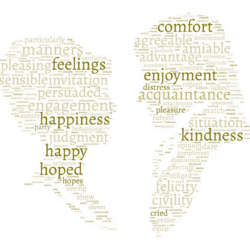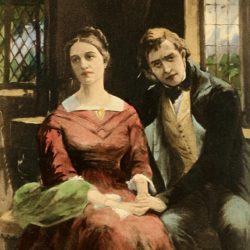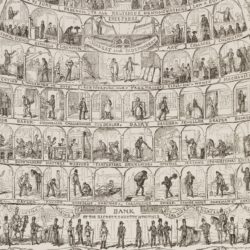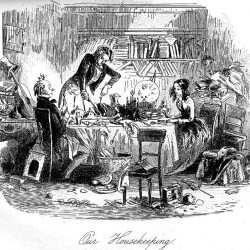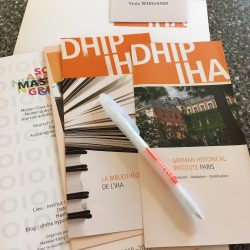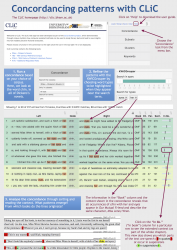#CLiCCreative demonstrates how the CLiC Web App can serve as both a creative resource and an innovative research tool for writers of historical fiction. You can find out more about the overarching project here. In this blog post, we’ve provided a keywords guide to our Jane Austen Corpus for aspiring writers of Regency fiction who … Continue reading “#CLiCCreative Jane Austen Keywords Guide”
Tag: characterisation
Words of affection in George Eliot’s Middlemarch
Eleonora Gallitelli was awarded a PhD in Comparative Literature at IULM University, Milan, for a thesis on the early Italian translations of works by Dickens, Faulkner and Rushdie, where she combined the methodologies of corpus linguistics and close reading. In this post, she identifies the different meanings that the vocabulary of affection assumes for the … Continue reading “Words of affection in George Eliot’s Middlemarch”
‘By the Sweat of their Brows’ or How Characters (Don’t) Sweat in Nineteenth-Century Fiction
Maya Sfeir is a Lecturer based in Beirut, Lebanon. Her research interests focus on examining and understanding the literary-linguistic interface. In this blog post, she explores how sweat is represented in Victorian fiction by examining two CLiC sub-corpora, 19C and DNov. Her previous contribution to CLiC,‘On Kitchens, Keywords, Key Clusters, and Concordances…’, re-examined eating and … Continue reading “‘By the Sweat of their Brows’ or How Characters (Don’t) Sweat in Nineteenth-Century Fiction”
Liminality in David Copperfield
In this guest post, Sophie Phelps explores ‘liminal’ Dickensian characters who are not quite children and not quite adults, as she shows with a case study of David Copperfield’s “child-wife” Dora. We think this topic is a fantastic fit for us: questions of characterisation in Dickens’s writing are very dear to the CLiC project. Childhood is … Continue reading “Liminality in David Copperfield”
Inspiration for corpus linguistics and stylistics: #dhmasterclass
This post reflects on the Digital Humanities Masterclass 2018 (#DHMasterclass) in which I participated at the German Historical Institute in Paris. [There’s an institute like this in London as well, by the way!] The masterclass was meant to bring together researchers working with digital tools and historical materials (particularly with autobiographical sources) from France and Germany … Continue reading “Inspiration for corpus linguistics and stylistics: #dhmasterclass”
CLiC guest post on the Blog of the Digital Literary Stylistics Special Interest Group (#SIG_DLS)
We are very pleased to announce a CLiC guest post on the Blog of the Digital Literary Stylistics Special Interest Group (also see the Twitter hashtag #SIG_DLS), which is curated by J. Berenike Herrmann (@Jberenike on Twitter) at the University of Basel’s Digital Humanities Lab. This special interest group brings together researchers from different perspectives … Continue reading “CLiC guest post on the Blog of the Digital Literary Stylistics Special Interest Group (#SIG_DLS)”
CLiC and Dickens’s not-so-conspicuous techniques of characterisation: Reporting verbs
Pablo Ruano San Segundo (@pablo_uex on Twitter) is a Lecturer at the University of Extremadura, Spain. He is a member of the CLiC Dickens Advisory Board and is an expert on reporting verbs in Dickens’s novels. In this post Pablo shares how he uses CLiC in his research. The creation of Dickens’s most memorable characters … Continue reading “CLiC and Dickens’s not-so-conspicuous techniques of characterisation: Reporting verbs”

